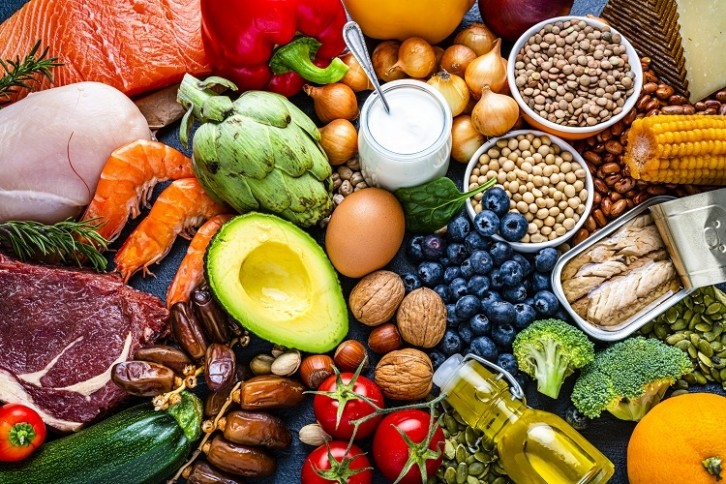How much power does diet have when it comes to overall health? And can a healthy diet actually reverse diabetes in patients? Co-authored by Joseph Doyle, a health economist at the Massachusetts Institute of Technology, A new ‘Food as Medicine’ program, which focuses specifically on type 2 diabetes, attempts to answer this question. So can he treat or reverse type 2 diabetes by improving nutrition?
What is diabetes?
Diabetes is a chronic metabolic disease characterized by elevated blood sugar (blood sugar) levels. Over time, this increase in blood sugar levels can cause serious damage to the heart, blood vessels, eyes, kidneys, and nervous system.
There are two types of diabetes: type 1 and type 2.
- Type 1 diabetes, formerly known as juvenile diabetes or insulin-dependent diabetes, is a chronic disease in which the pancreas produces little or no insulin on its own.
- Type 2 diabetes is the more common form of diabetes and occurs when the body becomes resistant to insulin or does not produce enough insulin. The prevalence of type 2 diabetes has increased dramatically over the past 30 years.
According to the World Health Organization (WHO), approximately 422 million people worldwide have diabetes, with the majority living in low- and middle-income countries. Approximately 1.5 million people die each year as a direct result of diabetes.
Is it possible to improve diabetes by improving nutrition?
The study involved 465 people with high blood sugar (glucose) levels. This was classified as an HbA1c hemoglobin value of 8.0 or higher. The participants were then divided into two groups, with half given a diet to prepare 10 nutritious meals a week, and the other half told to continue eating their regular diet.
What is HbA1c?
The HbA1c test is a blood test that measures your average blood sugar level. It is one of the most commonly used tests to diagnose prediabetes and diabetes, and is also a key test to help manage diabetes.
Foods available to study diet participants included whole grains, fruits, vegetables (with an emphasis on fresh rather than canned or frozen), lean proteins, and low-fat dairy products. Ta. Participants were able to choose from a variety of foods according to the nutritionist’s recommendations. For example, one week’s meal options included two types of fish, two types of poultry, five types of fruit, and nine types of vegetables. New recipes were provided each week with the goal of creating nutritious and satisfying meals.
This program used the American Diabetes Association plate method to determine portion sizes.
research result
Half of the participants who switched to a nutritious diet saw their hemoglobin A1c levels drop by 1.5 percentage points over six months. However, study participants who continued with the same diet saw their hemoglobin A1c levels drop by 1.3 percentage points over the same period. This suggests that the relative effectiveness of the program is limited and that more intensive and controlled interventions are needed.
“We found that when people were given access to food through the program, their blood sugar levels did drop, but the control group saw about the same drop,” says Joseph Doyle.
Further research required
Although the results are fairly inconclusive, there are mitigating factors to consider when reviewing. The first is that some people in the control group who had high blood sugar levels are likely to improve without intervention.
“When we examine people whose health is declining, many improve on their own if they take steps to stay out of this danger zone, such as making modest changes to their diet and exercise,” Doyle explained. Masu.
Additionally, the researchers found that because both groups worked regularly with health care professionals, those in the control group who intended to continue eating their normal diets were naturally eating healthier without realizing it. I think it’s possible. Therefore, future studies may avoid such access to medical professionals in the control group.
They also believe that the fact that the study was conducted during the coronavirus pandemic means that the results may have been influenced.
Finally, although the program provides ingredients, participants must prepare their own meals, which can impact compliance with the program. Future studies may find different results with ready-made meals.
“Experimenting with these ready-made meals seems like a natural next step,” Doyle said, adding that more research into food-as-medicine programs aimed at tackling diabetes is underway. Emphasize that you want it.
Doyle is quick to recognize that more research is needed and does not want this single study to be the final word on the potential impact of nutrition on diabetes.
“If we find that a particular intervention doesn’t improve blood sugar levels, we don’t just say ‘nothing should be tried,'” Doyle says. “Our research definitely raises questions and provides new answers never seen before.”
In addition to planning to conduct further research, he hopes it will “spur further research to find ways to make a big impact.”
Source: JAMA Internal Medicine
Published online: December 26, 2023
DOI: https://jamanetwork.com/journals/jamainternalmedicine/article-abstract/2812982
Author: Joseph Doyle, Marcella Alsan, Nicholas Skelly, et al.




